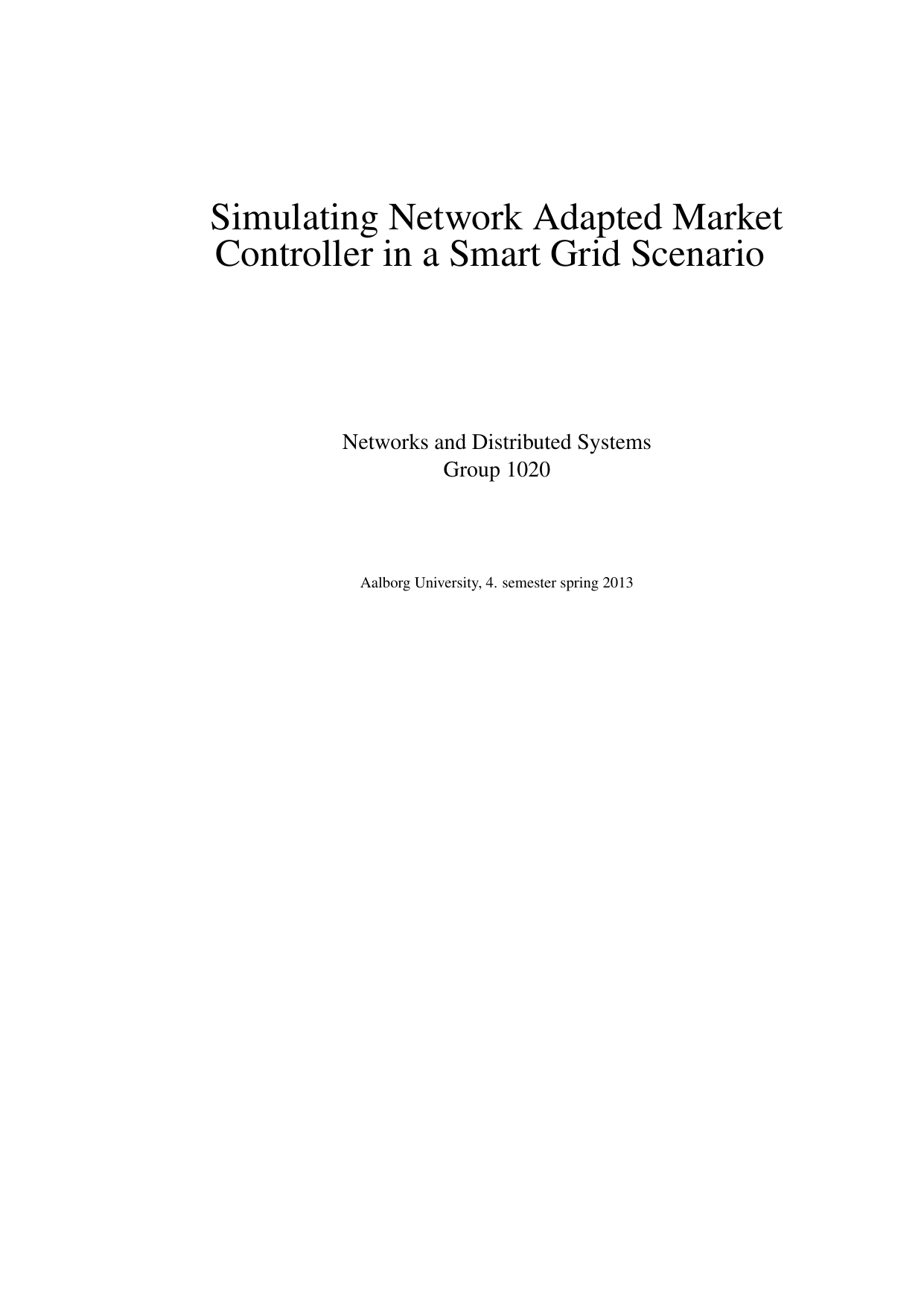
Simulating Network Adapted Market Controller in a Smart Grid Scenario
Translated title
Simulering af Netværkstilpasset Markedskontrolenhed i et Smart Grid Scenarie
Term
4. term
Education
Publication year
2013
Submitted on
2013-06-05
Pages
49
Abstract
Fremkomsten af smart grid kræver en systematisk tilgang til at verificere visse scenarier. Vi ønsker at lave en simulerings ramme hvor effekten af et uperfekt netværk kan ses på ydelsen af en kontrol algoritme. Vi vil forsøge at forbedre ydelsen ved at tage netværks forhold i betragtning. I denne rapport definerer vi et scenarie for smart grid hvori en general arkitektur for kommunikationen, kontrollen og strøm distribueringen er defineret. Derefter beskriver vi kontrol algoritmen som vil blive brugt i det definerede scenarie. Denne kontrol algoritme er en markeds kontroller som forsøger at regulere strøm forbruget i timer hvor det er højt, ved at opbevare termisk energi i køleskabe når der er lav efterspørgsel på strøm, og bruge denne opbevarede energi når der er høj efterspørgsel på strøm. En ydelsesevne kvantificering er blevet defineret, og denne viser indflydelsen a et ikke perfekt netværk. For at forbedre ydelsen af kontrol algoritmen to metoder er blevet undersøgt, en hvor kontrol parameteren er skaleret i forhold til pakketabet, og en hvor kontrol beskeden er sendt flere gange. Den første metode viser at ydelsen kan forbedres sammenlignet med ikke at adaptere kontrol algoritmen. Den anden metode viser at der er forbedring af kontrollen ved at transmitere kontrol beskeden flere gange, men brugen af mismatch probability giver ikke mening i dette scenarie. Den første metode er meget specific for det valgte scenarie, mens den anden metode er mere generel.
The emergence of smart grids requires a systematic approach to verifying certain scenarios. We wish to make a framework where the effects of an imperfect network can be seen on the performance of a control algorithm. We will then attempt to improve the performance by taking network conditions into account. In this report we define a scenario for the smart grid, wherein a general architecture for the communication, control, and power distribution is defined. We then describe the control algorithm that will be used in the defined scenario. This control algorithm is a market controller that attempts to regulate the power consumption during peak hours, by storing thermal energy in refrigerators when there is low power demand and using this stored energy when there is a high power demand. A performance metric have been defined which shows the impact of an imperfect network in the simulations. In order to improve performance of the control adaption two methods have been considered, one where the control parameter value is scaled according to the packet loss, and one where the control message is transmitted several times, based on the probability of information mismatch. The first method shows that performance can be increased compared to not using adaptation of the control algorithm, and the second method shows that although there is improvements in transmitting the control message several times it does not make sense to use mismatch probability in this scenario. The first method is very specific to the defined scenario, while the second method can be generalized.
Keywords
Smart ; grid ; plc ; power line communication ; simulation ; omnet ; matlab ; framework ; adaptive control
Documents
